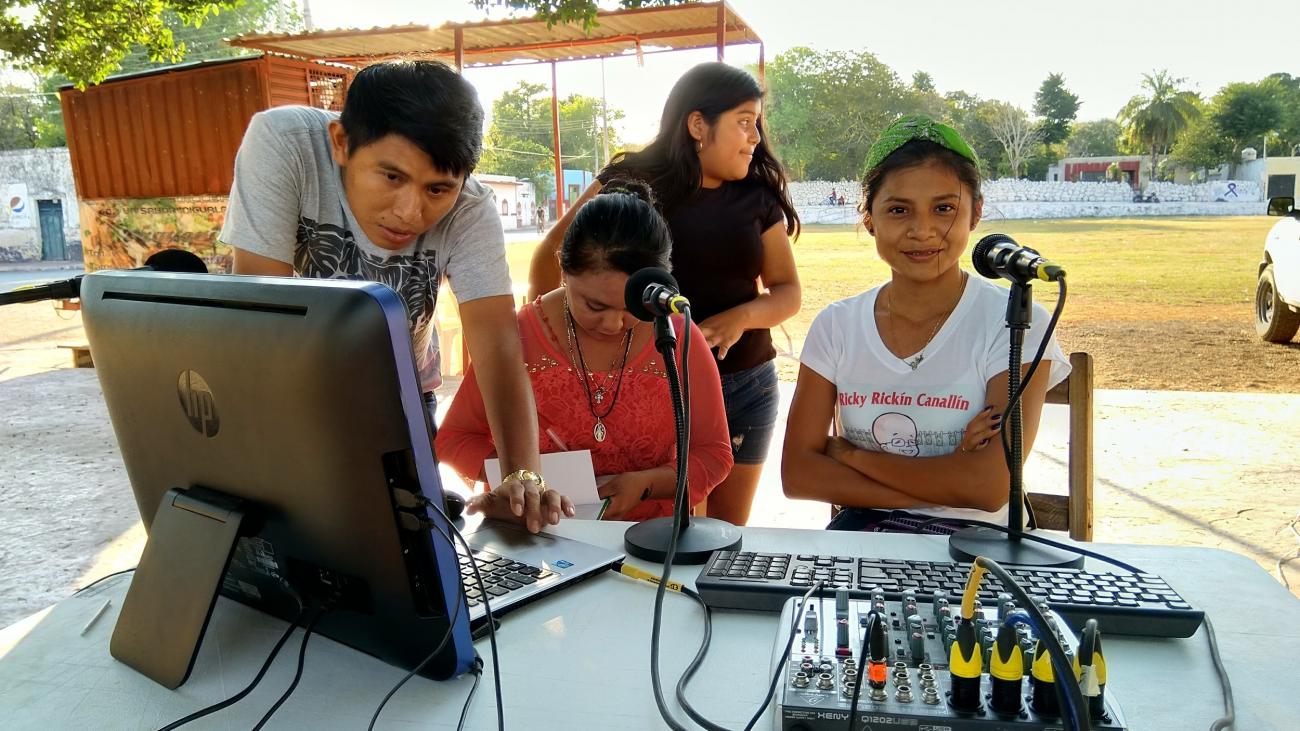|
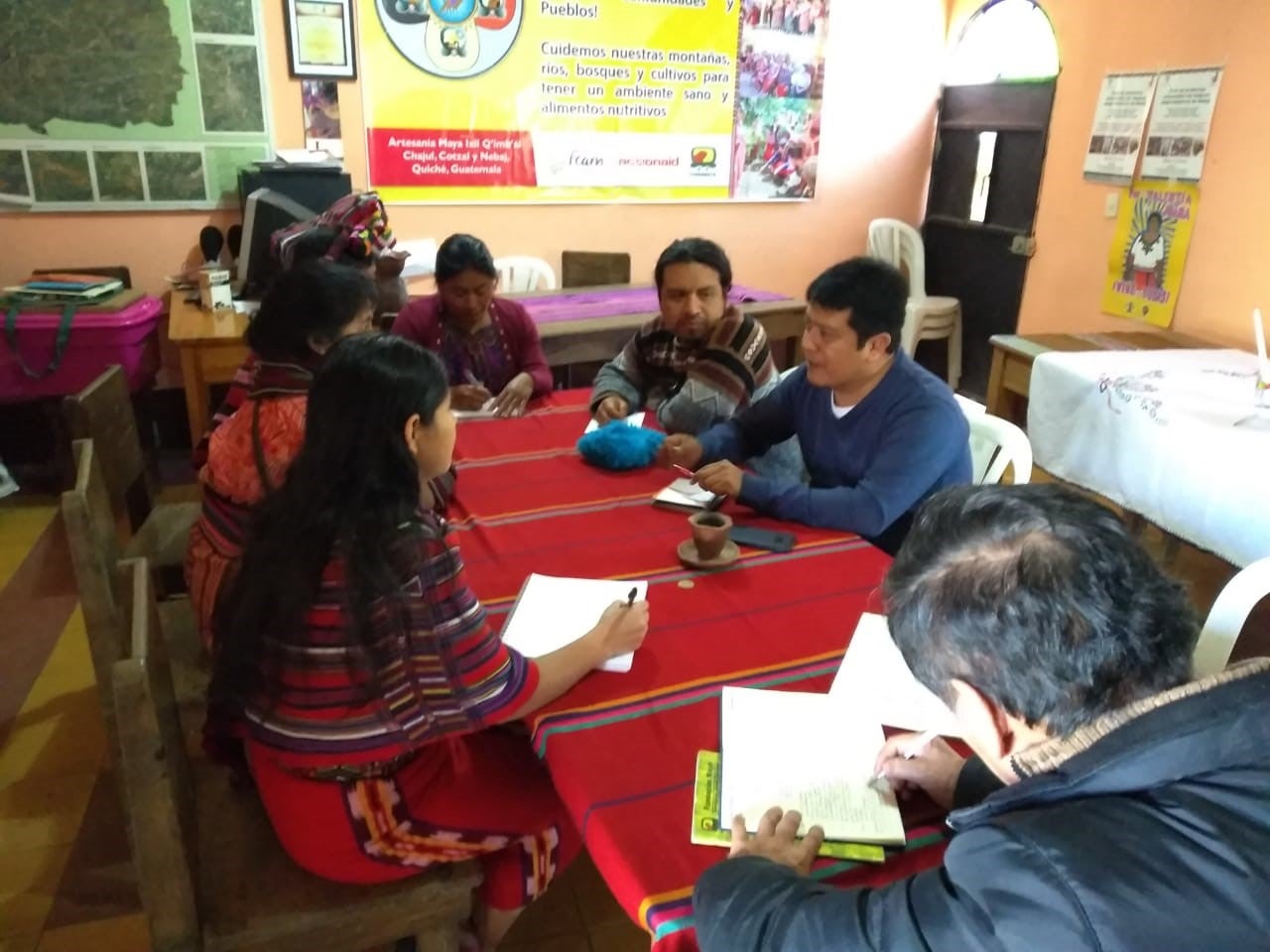
Association of Women Weavers. Cantón Batz, Nebaj, Guatemala. (Maya Ixil Nation)
Launching a new community radio station
Created by Ixil women, the Association of Women Weavers, in collaboration with ancestral Maya Ixil leaders, youth, and the Ixil University, will launch their first community radio station. Their project will start with strategic planning, community consultations with partners and stakeholders, creating a radio council, and organizing capacity building in radio program production and equipment maintenance.

Bwabwata Khwe People. Namibia. (Bwabwata Khwe Nation)
Launching an online radio station
The Bwabwata Khwe people, a sub-tribe of the Saake people or San, are one of the oldest Indigenous communities living in Sub-Saharan Africa. Our Community Media Grants Project will support the remote Khwe community of the Kwando and Kavango Rivers' first experience in community radio, first through an online radio station, followed by launching a standard station. The goal of the new station is to maintain traditional and ancestral knowledge of their elder generation. Their radio station will also inform of current affairs related to the environment and other important matters to the community locally and internationally.
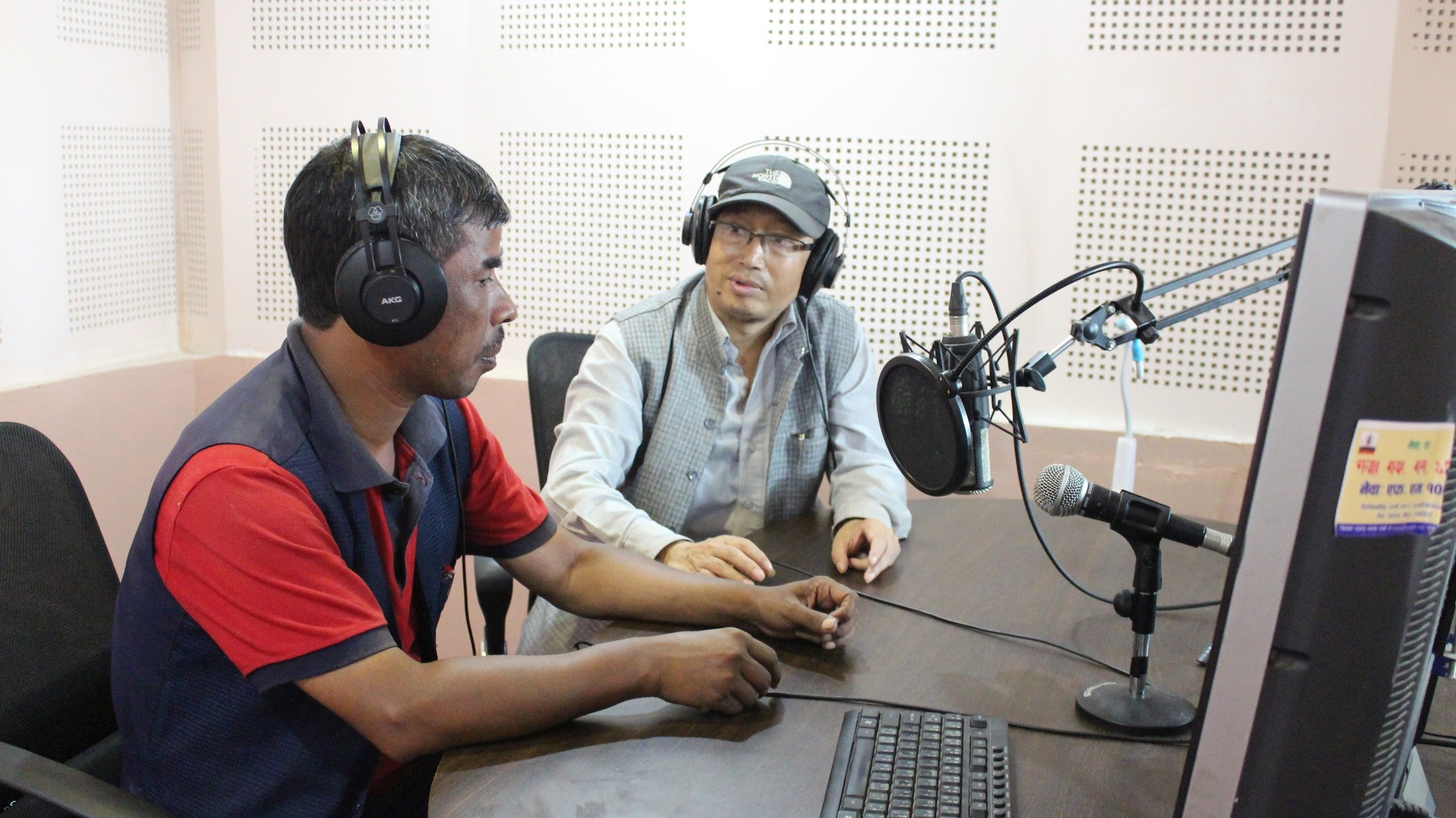
Newa FM Radio. Nepal. (Newar Nation)*
Highlighting Newar culture and heritage on the air waves
Based in Kirtipur municipality in Kathmandu, Newa FM Radio, founded in 2007 by the Nepal Bhasa Academy, is the only organization established to maintain literature, culture, and arts of the Newar community. Newa FM will record 20 programs and live shows highlighting the impact of modernization and globalization on Newar heritage, impact of development taking place on Newar lands that are destructive to the community. Also 20 radio programs will be produced highlighting stories of elders for younger generations and will be shared through radio and social media.
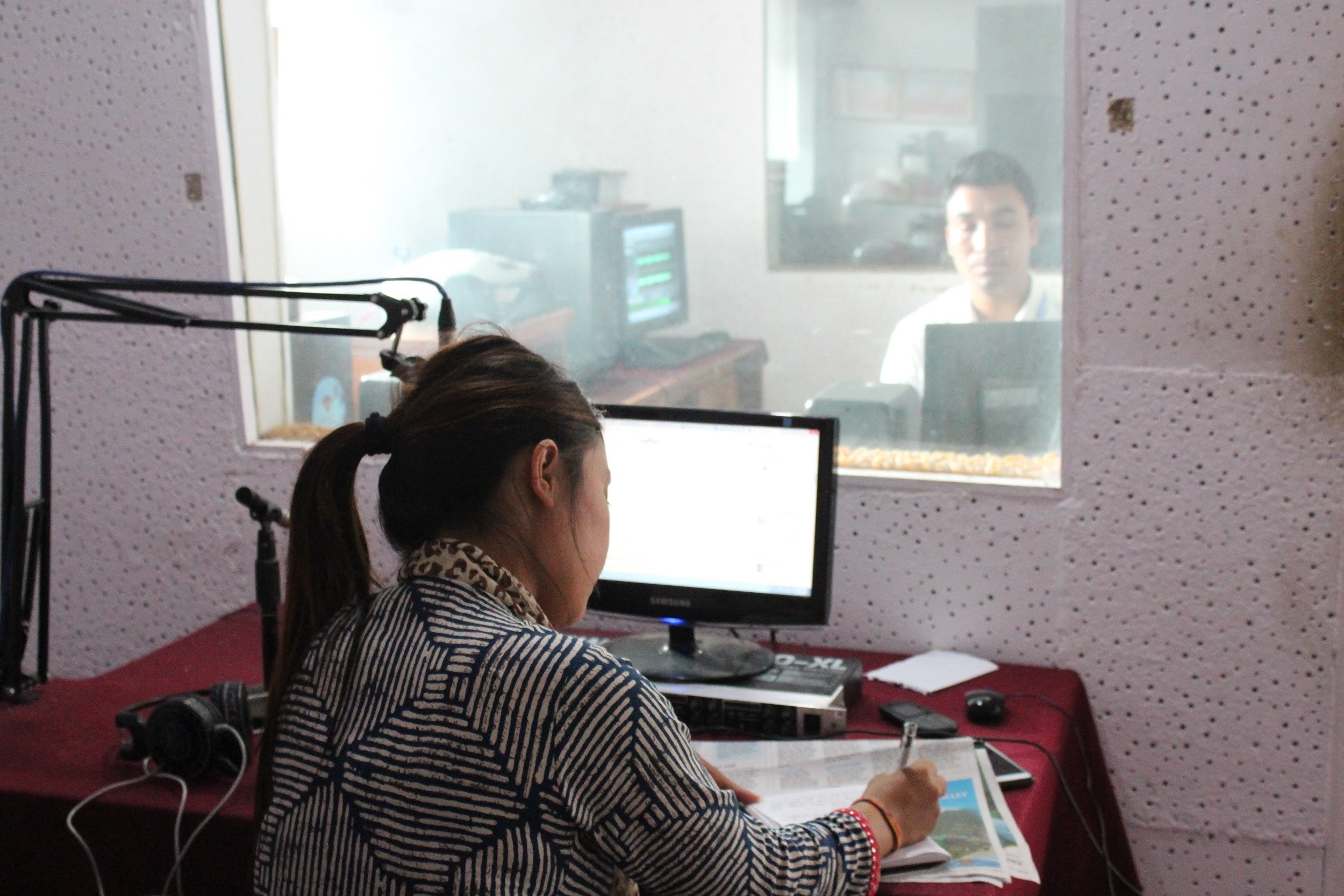
Kalinchowk Radio. Charikot, Dolakha, Nepal. (Tamang Nation)*
Making the hydropower industry respect Indigenous rights
Founded in 2007, Radio Kalinchowk FM 106.4 has been producing and broadcasting radio programs into Nepali and four Indigenous languages: Thami, Jirel, Surel and Tamang. Kalinchowk FM aims to make hydropower investors fulfill their commitments to respect Indigenous People’s rights to Free, Prior and Informed Consent and right to land and to compensate for land loss and displacement of families from their territories. The station will raise awareness about the rights of Indigenous Peoples, including UNDRIP, ILO Convention 169, and the Nepali Constitution.
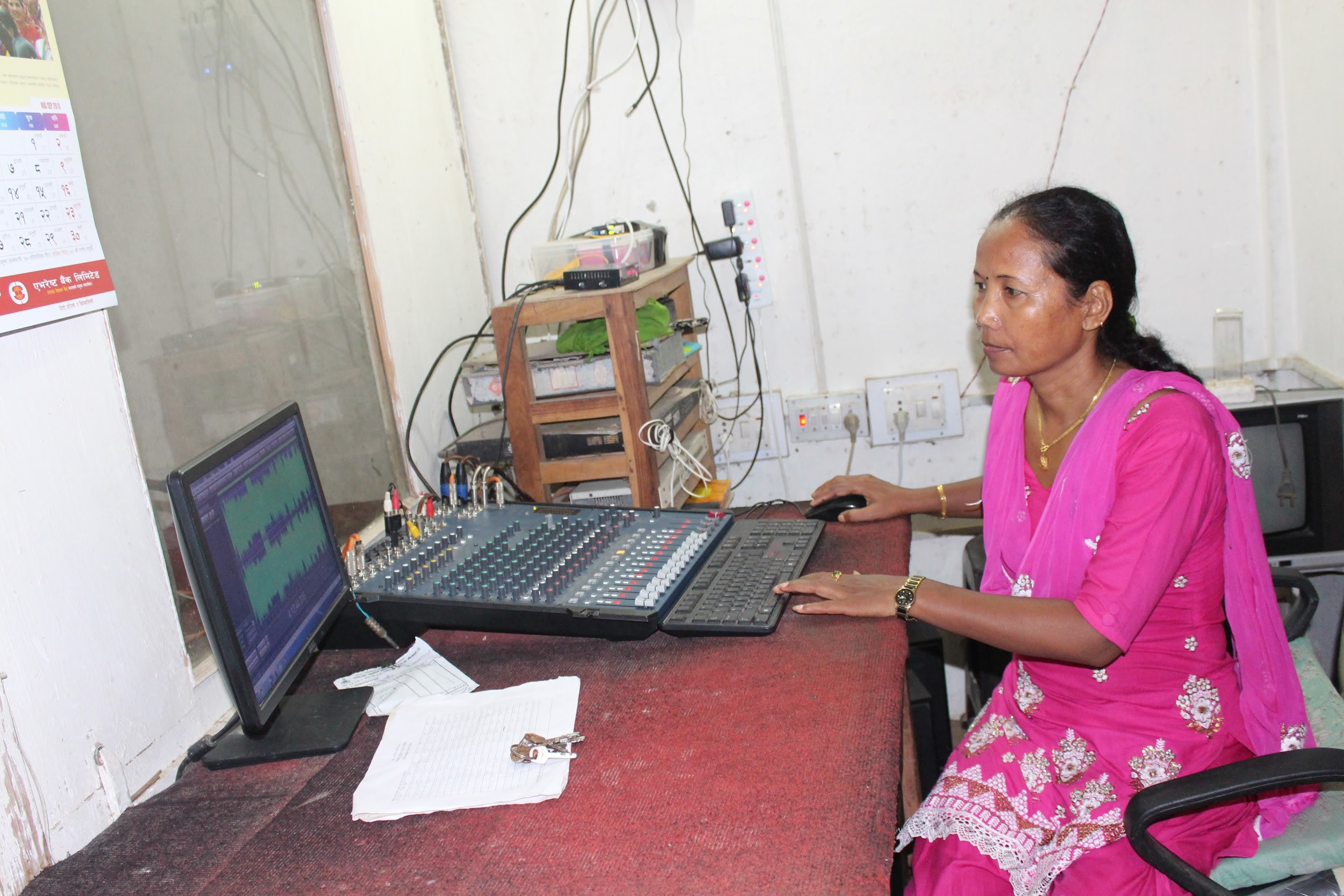
Gurubaba Radio. Bansgadhi, Bardia, Nepal. (Tharu Nation)*
Training new Tharu radio journalists
Run by NGO Prachin Srijanshil Adhibashi Samaj (‘Creative Indigenous Society’), Gurbaba FM was founded by Tharu communities, one of the economically, educationally, politically excluded communities in Nepal. Gurubaba FM aims to increase the number of Tharu journalists; local news and programs related to Tharu communities, ensuring access to information and to increase participation in development. Gurubaba FM will conduct journalism trainings and trainees as reporters will produce local news to be broadcast on Radio Gurubaba and on other local Indigenous community stations.
Radio Ak Kutan. Punta Gorda, Belize. (Maya Q’eqchi Nation)
Involving Indigenous youth in radio
Ak Kutan FM, a community-based radio station in Blue Creek Village, Toledo District, Belize, is linked to Tuul K’in Learning Centre, a local Indigenous high school where the youth participate in radio. To encourage more youth involvement and achieve sustainability, this project will implement a five-year strategic plan and train twenty youth in radio: audio production and editing, community journalism, and maintenance of radio equipment. These activities and the acquisition of essential equipment will ensure the station’s sustainability.

Eden FM Radio. Eden, Southern Cape Town, South Africa. (Khoisan Nation)
Promoting Khoisan traditional knowledge
Eden FM nurtures tolerance, cultural diversity, and different points of view in Eden, Southern Cape Town. Their project will produce and broadcast radio content in Afrikaans, English and iXhosa based on a youth research project on the vernacular name of medicinal plants used by the Khoisan people and elders’ stories about them. Research will include mapping, gathering information, and conducting interviews on the ancient art in rocks in Karoo and Hessequa of the Eden municipal area. Eden FM will partner with the Indigenous Knowledge and Heritage Research Centre to train youth in researching about the plants and the art of the KhoiSan.

Bush FM Radio. South Africa. (Khoi Nation)
Promoting Indigenous cultures and languages
Bush FM is a contributor to the emergence of Indigenous historical pride through a project that aims to produce new content to increase knowledge and understanding of Indigenous cultures, languages and practices. Bush Radio will train 10 producers in technical production, research, and editing skills to produce 30-minute features focussing on the various aspects of Indigenous communities, including the language, culture, and rites of passage in four languages: Afrikaans, English, Khoi Khoi & Nluu.

Radio Kipa. Saraguro, Ecuador. (Kichwa Nation)*
Starting a new community radio station
La Coordinadora de Organizaciones del Pueblo Kichwa Saraguro (CORPUKIS) brings together Kichwa Saraguro people who are part of the Confederation Indigenous Nationalities of Ecuador CONAIE together with campesino and Indigenous grassroots organizations to advance civil rights, human rights and collective rights in their territory. Radio Kipa is one of the few radios that was able to secure a radio license from the Ecuadorian State in the past couple of years. The project will support the purchase of radio equipment, including a radio booth. The project will also train 30 young people in community communication.
Radio Chiquixji. Alta Verapaz, Guatemala. (Maya Q’eqchi’ Nation)
Strengthening capacity in radio
Radio Chiquixji serves a bilingual Mayan population (Q'eqchi' and Spanish), and monolingual Q'eqchi community. This project will create participatory and inclusive strategic planning with new volunteers and collaborators of the radio, the elaboration of a new programmatic bar, and increase capacity building in communicators with a strong gender focus and Maya cosmovision. The topics of interest for the production of the radio are the rights of Indigenous Peoples, protection of lands and resources, rights of Indigenous women, national legislation that affects the rights of the people and intermediation journalism.
Radio Jolom Konob. Santa Eulalia, Huehuetenango, Guatemala. (Maya Mam Nation)
Building capacity of Indigenous radio journalists
Radio Snuq Jolom Konob was founded in 1997, after the Guatemalan peace agreements were signed, to promote Mayan identities, languages, food, and Indigenous music. The station has promoted the dissemination of the Buena Fe Community Consultations to defend Indigenous territory and resources from extractive projects and the Monsanto law. The station will train twenty radio journalists in technical aspects of radio, production, and will promote women's rights and participation. Municipal political forums will be held on air and through radio spots in Q'anjob'al and Spanish during the election season.
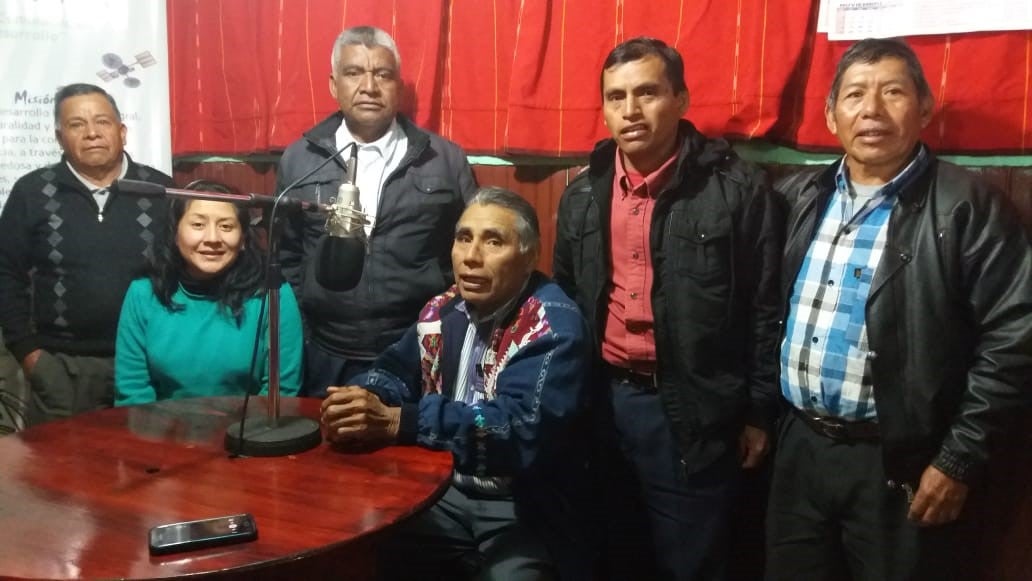
B’alam Stereo. Cabricán, Guatemala. (Maya Mam Nation)
Building capacity of radio staff
B’alam Stereo is one of the older Indigenous radio stations in the Guatemalan highlands, serving the Maya Mam population since 1976. Their work has strongly promoted education, health, water and justice. This project will support the station to train staff in the maintenance of equipment in order to become self-sufficient. They will also organize an exchange between staff members with a radio in Q'eqchi' territory to learn about how their work is supporting Indigenous ancestral governments. Balam Stereo will also produce radio spots motivating conscious voting in the communities of Cabricán and Huitán during election season.
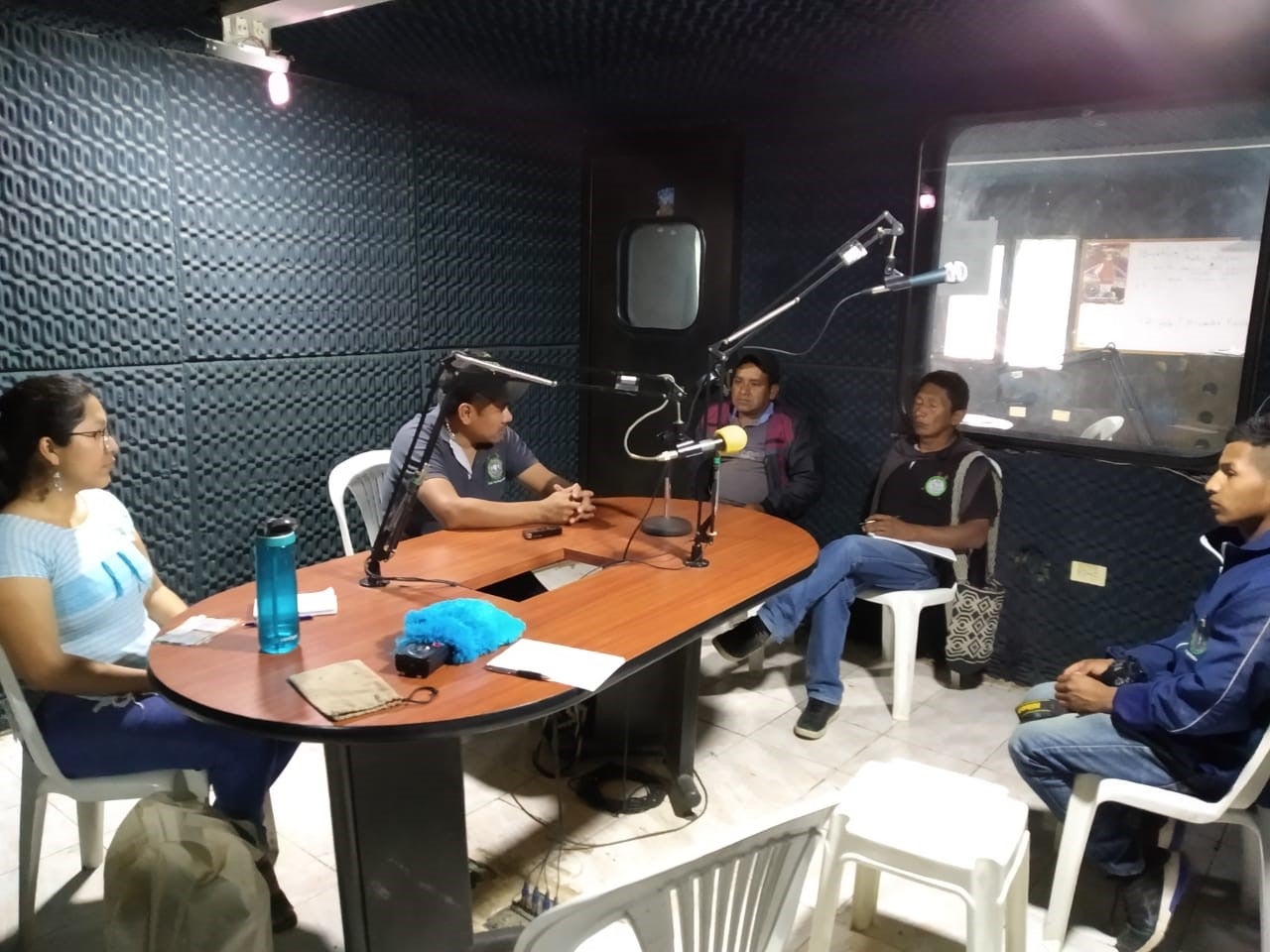
Uswal Nasayuwe Stereo. San Lorenzo Caldonno Cabildo Reserve, Cauca, Colombia. (Nasa Nation)*
Raising awareness about the need for environmental protection
In 1998, Uswal Nasayuwe Stereo was established as a strategic platform that promoted the oral traditions of the Nasa people and transmitted local informative and educational content. The Nasa people have been caretakers of the land and watersheds of their territory. Due to impacts of climate change, they want to raise awareness about the importance of protecting their lands by promoting their spiritual ecological knowledge in managing the ecosystem. Their project will create a program on the protection of the environment and will boost traditional governance by training their radio team in production, journalism, investigation, and equipment maintenance.
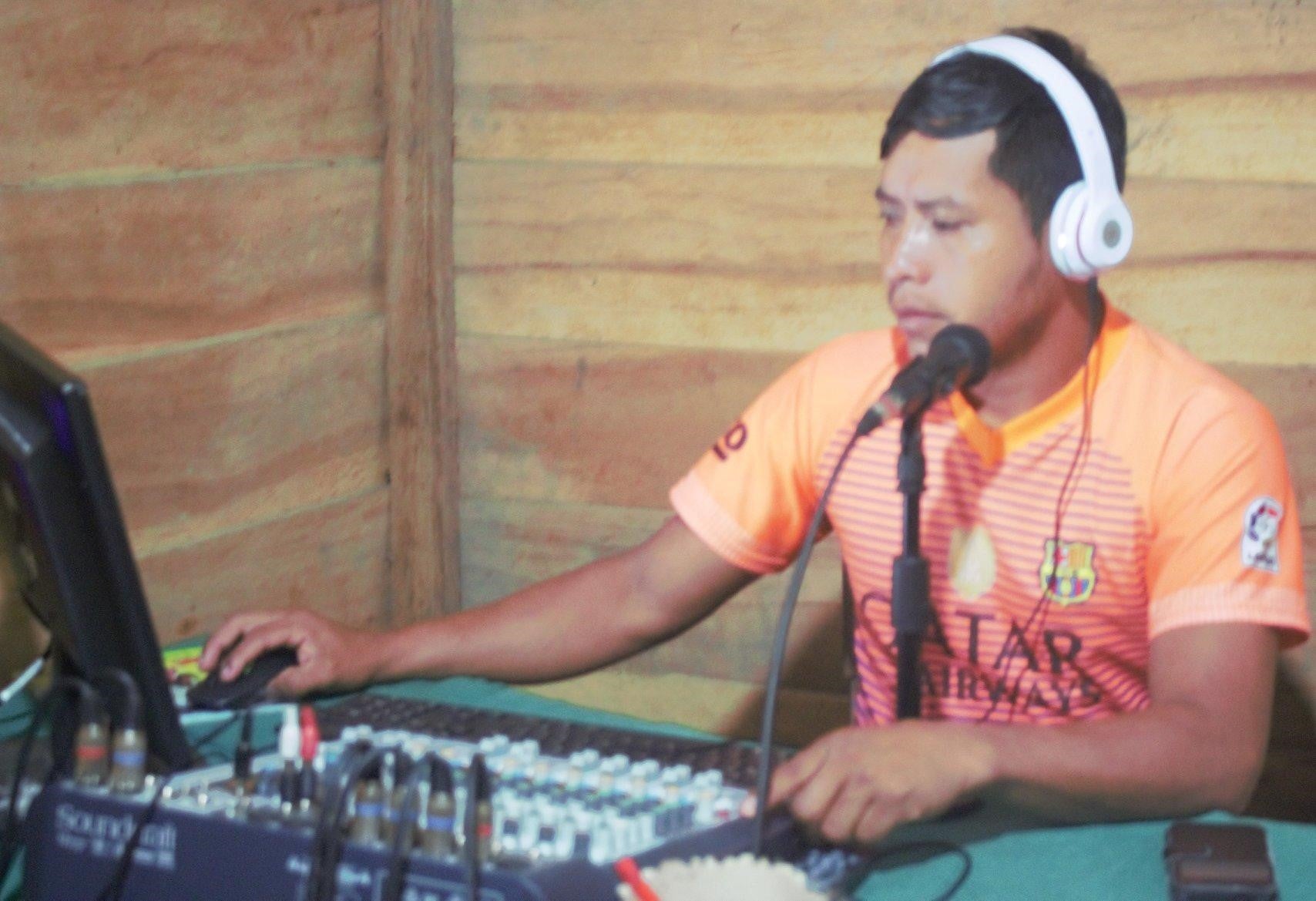
Radio Emisora Tuntui. Peru. (Wampis Nation)
Promoting Wampi culture on air
Gobierno Territorial Autónomo de la Nación Wampis is an institution of self-governance that collectively manages their territory. Radio Emisora Tuntui is a part of the Wampis Nation and its autonomous territorial government established in 2016. Ongoing broadcasting reinforces cultural pride and strengthens governance as the station has been informing the community about threats to their territory. Their project will build capacity of 12 young leaders from the Kanus and Kankiam communities through trainings in journalism, program development, and maintenance of equipment, while addressing environmental and cultural issues affecting their communities, deepening Wampis cultural pride, and recovering their ancestral knowledge.
Community Radio Project. El Pueblo Kichwa de Sarayaku, Ecuador. (Kichwa Nation)
Promoting youth and women’s leadership in radio
The Sarayaku village has their own council of governance. In the area there is no phone signal and limited internet signal. However, there is no Indigenous community radio station in the region leaving people to listen to local commercial radio stations that do not reflect the culture or language of the Sarayaku people. They started collaborating with a local radio station in Puyo to broadcast their own content, strengthening the Sumak Kawsay (harmony of life) practice, language, worldviews, rights, and ancestral knowledge to ensure the existence of their culture for generations. Their project, Chikwan shimi kikin pacha musiachik ("The colorful bird and singer of the hidden truths"), will produce weekly programs and build capacity among the youth and women.
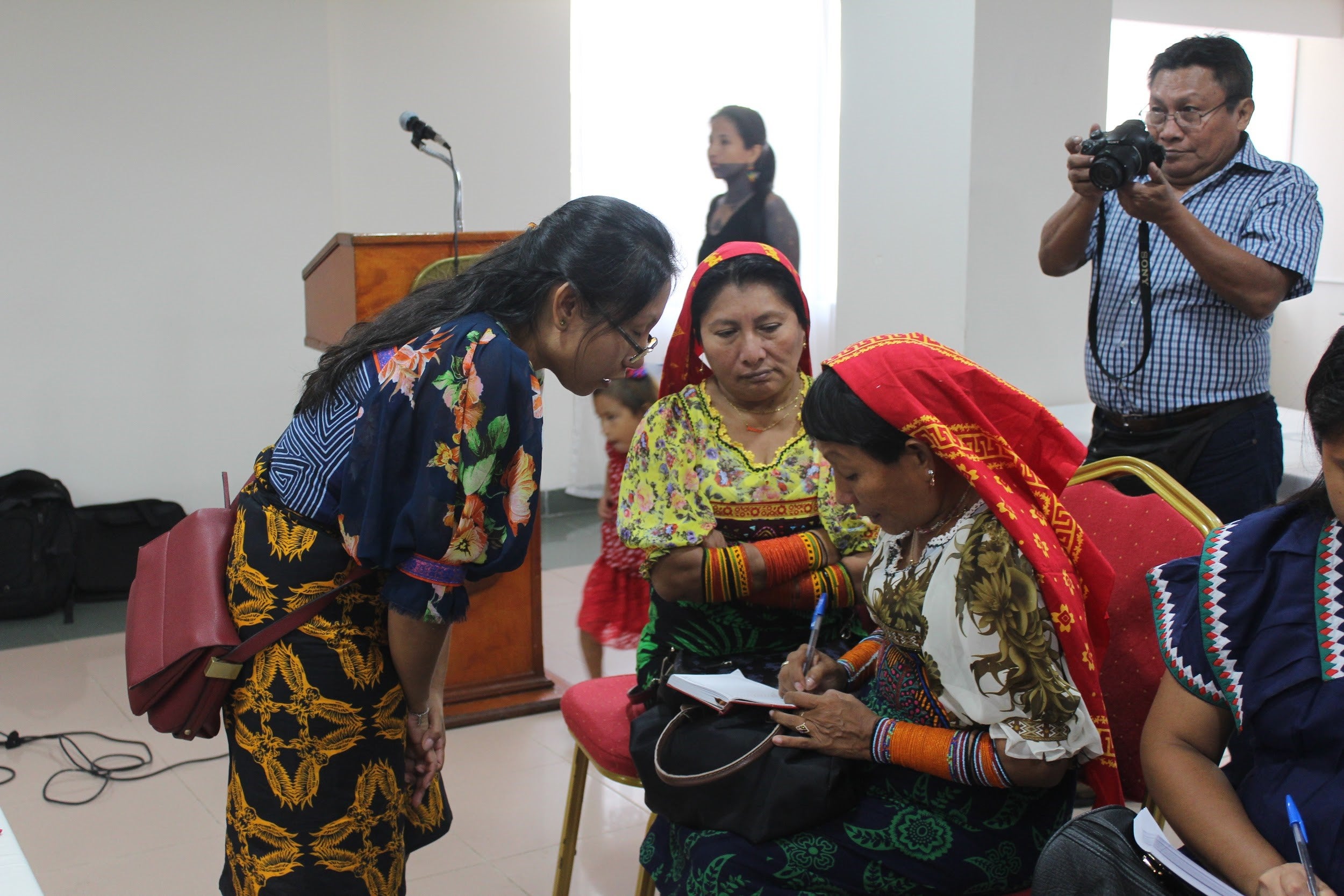
Radio Experimental. Pueblo Guna Yala, Panamá. (Guna Nation)
Securing a permanent radio station to serve the Guna community
In 2015, the Information and Communication Secretariat of the General Congress of Gunayala, motivated by the experience of Radio Costeña Kusapín, an initiative of a Ngäbe Bugle youth, acquired a small transmitter. Since then the station has been covering general assemblies for three years, which has allowed for those who cannot participate directly to follow the discussions in the radio. Guna Yala will permanently establish a station that will reach the entire region to respond to needs of their communities as a resource for cultural and social development. The first step will be training ten young Guna and the acquisition of radio equipment for community journalists.

Radio San Pedro. Ignacio Muiba Trinidad, Beni, Bolivia. (Mojeños Trinitarios, Canichana, Cayubaba Nations)
Improving radio operations
Radio San Pedro was the first Indigenous community radio station in Trinidad. Their vision is to create an inclusive communication platform where there is gender equity and the voices of Indigenous Peoples are heard. The radio has worked hard in raising awareness among the urban population on Indigenous Peoples’ rights where issues of violence and racism still persist, predominantly affecting Indigenous women. Their project aims to strengthen communication by responding to the needs of the Indigenous communities to develop better livelihoods. They will create a strategic sustainability plan for the station, apply for a frequency license, build technical capacity, and improve program content to revitalize the cultural identities of local Indigenous Peoples.

Radio Comunitaria ODECO. Honduras. (Garífuna Nation)
Promoting the rights of Garifuna communities
In 2013, ODECO obtained a fifteen-year license to operate a community radio station, serving the Garífuna communities of Gracias a Dios, Islas de la Bahía, Atlántida and Cortes in Honduras. With the support of Cultural Survival, they will build capacities of young volunteers in technological tools. Radio ODECO will also promote international Indigenous rights mechanisms such as ILO Convention 169 and the UN Declaration of the Rights of Indigenous Peoples. The youth trained in communication, local leaders in each territory, and ODECO will launch projects to respond to local demands such as health, HIV prevention, sexual reproductive health, human rights, prevention of HIV, leadership training schools, and even accompaniment in cases of complaints of discrimination.
Radio Ñomndaa. Guerrero, México. (Ñomdaa Nation)
Evaluating 14 years of work of the station
Radio Ñomndaa (“water”), was created to serve Indigenous, Mestizo and Afro-descendant communities of the Costa Chica region. Its fundamental purpose is to disseminate programs that reconstruct the history and cultural practices of the Amuzga, Mixteca, Nahua, and Afromestiza people. Their project will evaluate the impact of 14 years of community radio broadcasting in Suljaa and train youth and promote more participation of youth and women in radio Ñomndaa’s collective work.
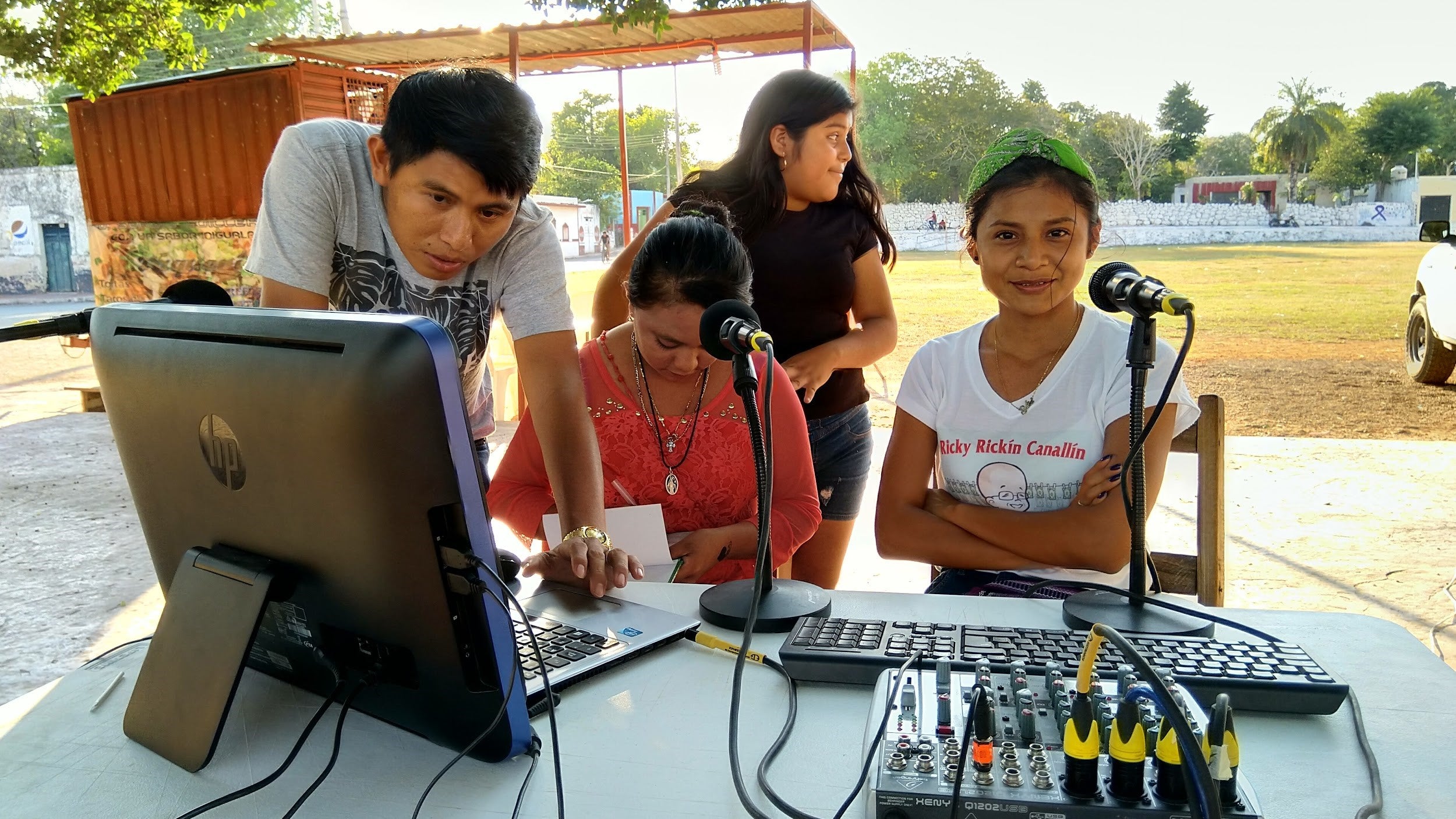
Colectivo Ko'one'mix Tuklik Múul Kuxtal [KTMK]. Yucatán México. (Maya Nation)
Launching a radio station to serve Indigenous communities
Colectivo Ko'one'mix Tuklik Múul Kuxtal, organized by Mayan Peninsular Women of Yucatan Mexico from six communities including Timul, Tahdziú, Nenelá, Mayapán, Cantamayec and Cholul, manages a mobile radio station in each of the communities. They record events and interviews in the Yucatec Mayan language that are later published with the help of the youth network Tumben Tuukul and are broadcast by an Indigenous Public Radio Station of the Mexican Government, other stations and on social media. The collective is committed to increase participation of youth and women. This project will include strategic planning to start an Indigenous community radio station, create a program team, form a new organizational structure, and train in radio production.
Radio Cultural GI NE GÄ BUHE T'HO. Hidalgo, México. (Ñhañus Nation)
Building women’s and youth leadership
Radio Gi Ne Ga Guhe Tho’ is one of the few stations that the Mexican government recognized as a cultural radio, but not an Indigenous one, despite the fact that they self-identify as Ñhañus. Ñhañus people have suffered displacement due to urbanization and extractive companies, which increasingly endanger the community’s sustainability. Their project will improve radio programming on the rights of youth and women as well as update their transmission and radio equipment, studio, and train volunteers in radio production.

Radio Zapata. Ejido of Buena Vista, San Luis Acatlán, Guerrero, México. (Nahuatl Nation)
Promoting rights on air
Supported by the Indigenous and Popular Council of Guerrero, a campesino and Indigenous organization that fights for the respect of Indigenous rights, Radio Zapata broadcasts in the Amuzga language and plays an important part in defending lands. Their project will build capacity at the station, increasing broadcast range through the placement of a wireless antenna system; training new members of the radio in radio production. They will conduct a participatory plan about the work of the radio in the Ñamnkué (amuzgo), Na'Savi (Mixteco), Me pháá (tlapaneco), Náhuatl, Afromexicano and mestizo community assemblies to build a communication policy according to local needs. They will carry out radio productions on the community justice system, the rights of Indigenous and Afromestizo women, as well as legends and oral stories, and a workshop that addresses the issue of enforced disappearance.
Radio Naxme. San Miguel del Progreso, Maninaltepec, Guerrero, México. (Me’pha & Nahuatl Nations)*
Promoting women’s rights to defend Indigenous lands
Radio Naxme began to inform the Me'pha language-speaking communities about the risks of open-pit mining in 2010 to 2012, that a Canadian company implemented through exploitation. The station also reaches some Nahuatl speaking communities and aims to strengthen local cultures and languages. During this project, Radio Naxme seeks to contribute to the promotion and defense of Indigenous women’s rights to live in an environment free of violence and with equal opportunities and promote the rights of communities to self-determination, including Free, Prior and Informed Consent. They will reach this goal through radio production training workshops with women, young people and local authorities. As a result of the training, a series of programs on women’s rights will be produced in the mother tongue and Spanish.
*Projects funded by Cultural Survival and WACC based in Toronto, Canada.
|
